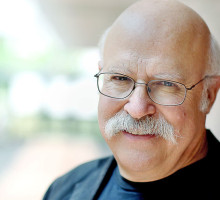
Reviews
What makes his essays so enjoyable and alive... is their leaping range of reference, always running one step ahead and urging us to catch up.
Professor Shapin has a sense of humor, a good eye for an anecdote and the ability to turn a phrase.
While it might not be for novices, anyone who is interested in how and why science enjoys a privileged position as a source of knowledge should read Shapin’s take on the authority given to it vis-à-vis religion and morality, why it is compliment to be both a gentleman and a scholar, and why it matters whether Newton ate chicken or Darwin farted.
An impressive work and one that scientists will benefit from reading. Shapin reminds us that... neither scientists nor science itself can be separated from the context of peoples’ minds, bodies, cultures, societies. Expectations based on any other understanding are simply unrealistic.
He is a graceful and engaging essayist, and the ample selection of essays in Never Pure ... affords an excellent basis for reflecting on what he has had to say about the life of science.
Never Pure will enrich the bookshelf of any historian of science.
A highly labored style of writing is deployed to perform scholarly virtues that go by names like 'careful,' 'accurate,' and 'rich.'
Book Details
Preface
1. Lowering the Tone in the History of Science: A Noble Calling
Part I: Methods and Maxims
2. Cordelia's Love: Credibility and the Social Studies of Science
3. How to Be Antiscientific
4. Science
Preface
1. Lowering the Tone in the History of Science: A Noble Calling
Part I: Methods and Maxims
2. Cordelia's Love: Credibility and the Social Studies of Science
3. How to Be Antiscientific
4. Science and Prejudice in Historical Perspective
Part II: Places and Practices
5. The House of Experiment in Seventeenth-century England
6. Pump and Circumstance: Robert Boyle's Literary Technology
Part III: The Scientific Person
7. "The Mind Is Its Own Place": Science and Solitude in Seventeenth-century England
8. "A Scholar and a Gentleman": The Problematic Identity of the Scientific Practitioner in Seventeenth-century England
9. Who Was Robert Hooke?
10. Who Is the Industrial Scientist? Commentary from Academic Sociology and from the Shop Floor in the United States, ca. 1900–ca. 1970
Part IV: The Body of Knowledge and the Knowledge of Body
11. The Philosopher and the Chicken: On the Dietetics of Disembodied Knowledge
12. How to Eat Like a Gentleman: Dietetics and Ethics in Early Modern England
Part V: The World of Science and the World of Common Sense
13. Trusting George Cheyne: Scientific Expertise, Common Sense, and Moral Authority in Early Eighteenth-century Dietetic Medicine
14. Proverbial Economies: How an Understanding of Some Linguistic and Social Features of Common Sense Can Throw Light on More Prestigious Bodies of Knowledge, Science for Example
15. Descartes the Doctor: Rationalism and Its Therapies
Part VI: Science and Modernity
16. Science and the Modern World
Notes
Index






